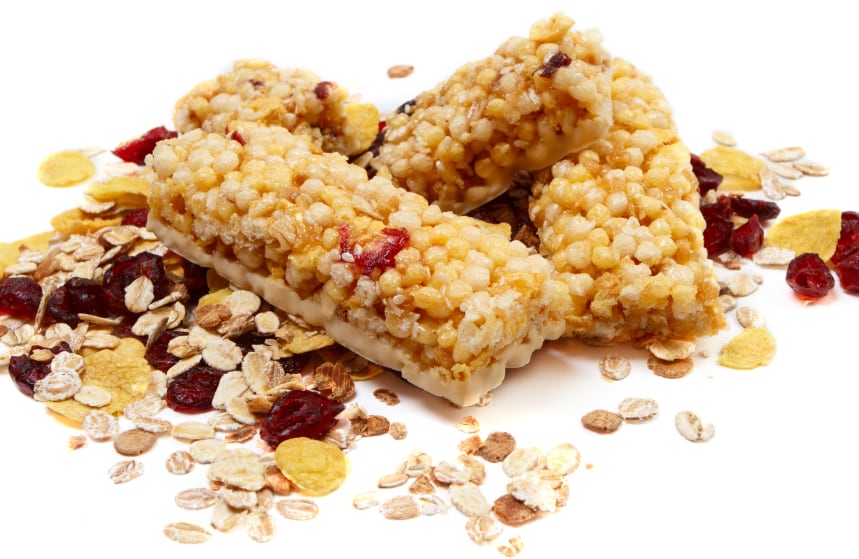“Clearly there’s equity in the Powerbar name. That’s one of the pieces of value there. Nestlé has been coasting on that equity for a long time,” Mark D. Shevitz, senior vice president and director of brand strategy and planning at CBD Marketing, told FoodNavigator-USA. “It’s a powerful thing to be able to say, ‘we invented the nutrition bar category.’ The question then becomes: that’s nice, but now what?”
Powerbar became ‘infamously’ bad tasting
Chris Schmidt, consumer health industry analyst for Euromonitor, noted that Nestlé has largely coasted on the existing Powerbar formula while smaller, nimbler brands like Clif and Probar swooped in and stole market share with tastier formulas with more natural ingredients.
“It’s interesting. They essentially were the category for a long time. Then they got in a rut and didn’t innovate as much as a lot of other companies to the point where Powerbar is now sort of infamously bad-tasting,” Schmidt said. “The category has gotten so much more competitive since they bought the brand in 2000. Brands with strong, natural athletic performance nutrition credibility—such as Clif bar and Probar—moved in with higher-protein content bars that taste better, have better texture and have more natural ingredients.”
Powerbar branched out into new product lines such as pre- and inter-workout gels and chews, as well as more traditional high-end, post-workout recovery bars. Schmidt pointed out “a lot of users had already come to view Powerbar as this mainstream brand that didn’t have the nutritional chops to maintain the market share of these newer, smaller brands.”
Post likely already has plans for innovation
Nestlé vice president of corporate communications Hannah Coan told FoodNavigator-USA that “for Nestlé, the sports nutrition business is too small to get the necessary attention, especially after the acquisition of Wyeth and the creation of Nestlé Health Science.” Still, , the company is “confident that the business, in the hands of a new owner who has already focused on the sports nutrition business, will flourish.”
Shevitz said Post likely already has plans to revamp the Powerbar brand.
“I’d be surprised if Post didn’t innovate around the brand,” he said. “My assumption is that they have some plan for Powerbar other than to stay the course. There’s a series of both tangible and intangible assets here that, given the right attention, would make it more valuable than what they bought it for.”
After all, it’s much easier to take an established name and try to make something slightly newer out of it or refresh it than to start from scratch, he added. “Especially in the sports nutrition category, there’s a level of trust needs to be established, and that doesn’t happen overnight. To have that equity, that built-in trust is really powerful.”

Elite athlete segment not enough to carry the brand
Schmidt said that in order to stay relevant, Post should shift the focus to stronger formulation, which would also help Powerbar broaden its target audience to capture more of the healthy snack and meal replacement segment.
“In the same sense that Gatorade is now focusing on elite athletes, Powerbar could launch a ‘pro’ line, though I don’t think this consumer pool alone would carry the brand,” Schmidt said. “They have to focus on the flavor and the texture of the bars and see how they can change formulation to have more mass appeal as a healthy snack."
Whether that means simply reformulating to be more like a Clif or Luna bar is “hard to say,” he said.
“I think if you’re going to position as mass-market product, it has to have that snack appeal so someone will actually pick it up and eat it. Powerbar hasn’t invested enough there. It’s a category that they’ve overlooked, that genre of bars that are tasty, have 200-odd calories and 10 grams of protein, as a snack or meal replacement at breakfast. There's a lot of potential there.”
Nestlé continues to unload underperforming brands
Nestlé has been on a mission to trim its massive portfolio since August, having divested its US frozen pasta business to Brynwood Partners in January and the bulk of its Jennie Craig business in November.
Now, reports from Reuters indicate the Swiss company is exploring a possible sale of frozen foods business Davigel for about $400 million. Nestlé is reportedly close to appointing a bank to advise on the possible sale, the sources told Reuters, though Nestlé declined to comment.
